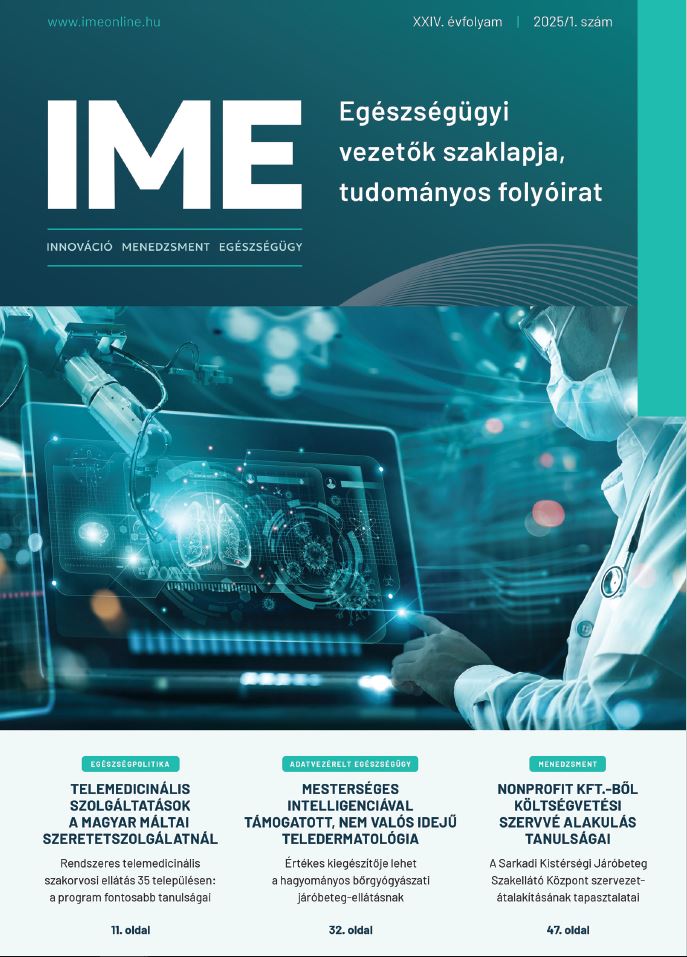Mesterséges intelligenciával támogatott, nem valós idejű teledermatológia hozzáférésre gyakorolt hatásainak vizsgálata és széles körű bevezetésének feltételei Magyarországon
Absztrakt
A nem valós idejű teledermatológia lehetővé teszi a dermatológiai ellátás biztosítását olyan esetekben is, amikor a személyes ellátáshoz való hozzáférés időbeli vagy térbeli korlátokba ütközik, amely fokozottan jellemző a hátrányos helyzetű, illetve a területileg hátrányos, alacsony lélekszámú településekről származó személyekre. A teledermatológia költséghatékonysága a szakirodalom alapján önmagában is számos ellátási esetben igazolt, a mesterséges intelligencia (MI) használatával pedig tovább növelhető az ellátás eredményessége, használatával csökkenthetők az ellátást övező ráfordítások, és a fennmaradó erőforrások további páciensek ellátására fordítható. Jelen tanulmány alapján, több, mint 8.000 adaton elemezve kimutatható, hogy az alacsony lélekszámú települések ellátása és egészségügyi szükségleteinek kiszolgálása jelentős hatást gyakorol az egészségügyi méltányosság elvének érvényesülésére, hiszen az esetek származási helye 73,26%-ban 5.000 lélekszám alatti település. Továbbá, az MI által támogatott teledermatológia az esetek közel 75%-ában képes a tünetek távolról történő ellátásában, így a személyes ellátást igénylő páciensek szűrésére is alkalmazható, és az így fennmaradó erőforrások további esetek elemzésére fordítható, lefedve akár a teljes magyar lakosságot, ezzel tovább növelve a méltányosság teljesülését. A méltányossági elv érvényesítése szakpolitikai döntéshozók hatáskörébe tartozik, a megoldás széleskörű, országos kiterjesztése szakpolitikai álláspont függvénye, ugyanakkor jelen kutatás alapján az országos kiterjesztés javasolt.

This work is licensed under a Creative Commons Attribution-NonCommercial-NoDerivatives 4.0 International License.




